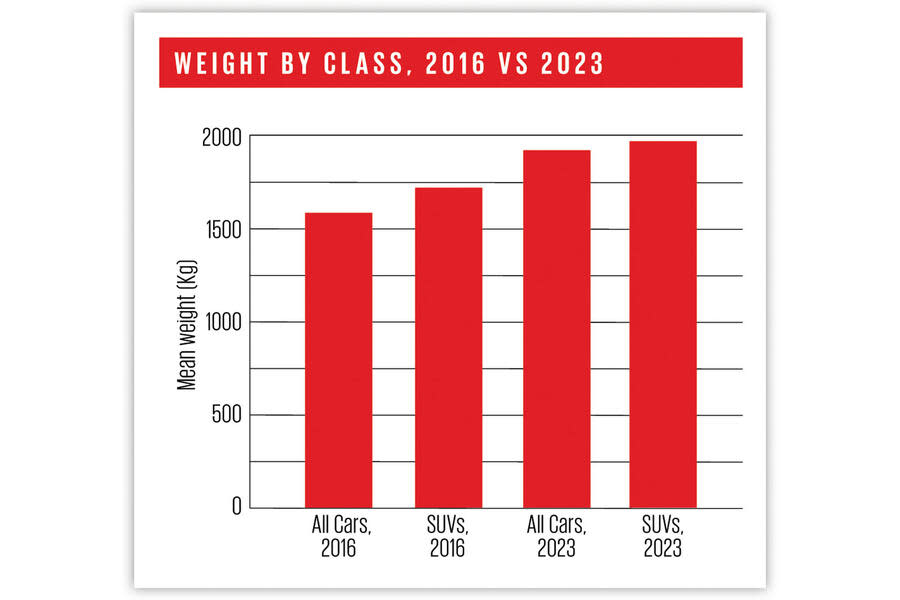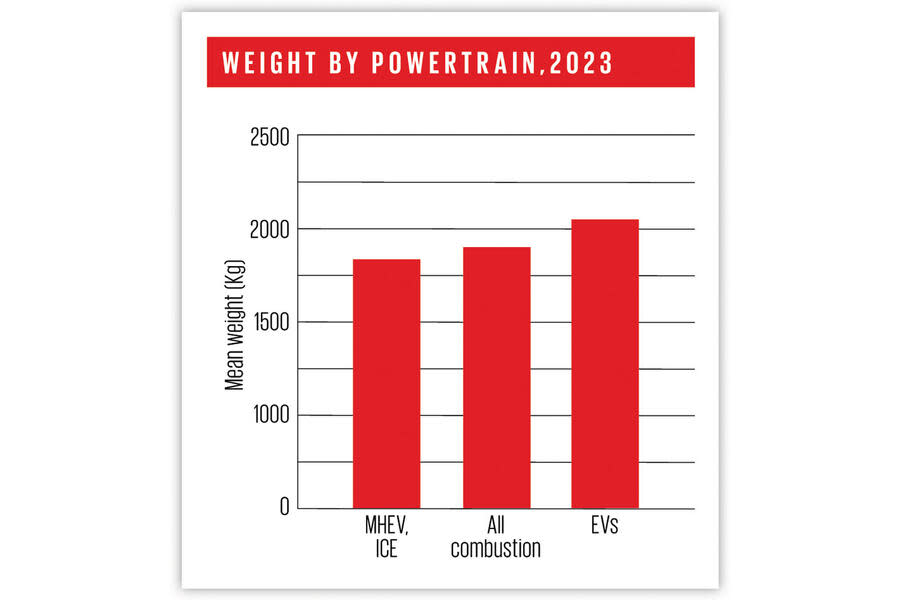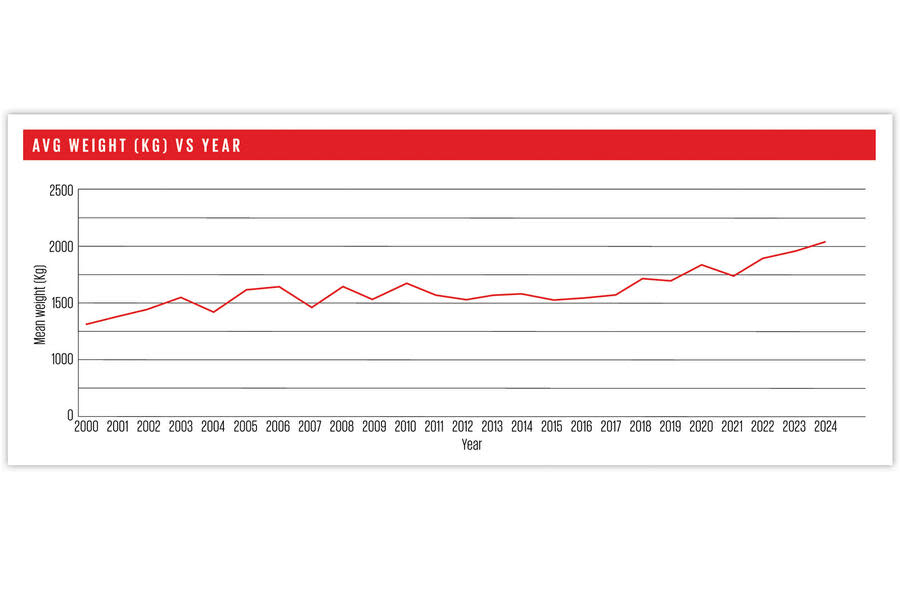The average weight of a new car has increased by almost 400 kg in the last seven years, according to data from Autocar.
Analysis of weight values from Autocar road tests shows that between 2016 and 2023 – approximately one model cycle – the average average The total weight of new cars increased from 1,553 kg to 1,947 kg.
The increase is partly attributable to the growing popularity of SUVs. Of all the cars road tested by Autocar in 2016, 16 were SUVs or crossovers. These had an average curb weight of 1,722 kg, 169 kg above all models tested that year.
Many of the SUVs driven that year were heavier than their sedan or hatchback counterparts. The Skoda Kodiaq, for example, weighed 1,751 kg, 246 kg heavier than the Skoda Superb tested the previous year. Likewise, the Jaguar F-Pace was 180kg heavier than the XF with the same 2.0-litre diesel engine.
In 2023, a total of 24 SUVs, crossovers and pickup trucks were tested, tipping the scales at an average weight of 1,985 kg. This represents a 38kg gap compared to the overall average – significantly smaller than the 169kg difference in 2016.
SUVs and crossovers weighed an average of 1,906 kg, which was below the average for all models tested in 2023 – suggesting that while the increased proportion of SUVs in the market is partly responsible for the overall increase in weight, it is not the only cause .
This suggestion is supported by the fact that the midsize SUV tested in 2023 is 183 kg heavier than in 2016.


Electrification also played a role in boosting new cars. The battery-electric models road-tested by Autocar last year had an average weight of 1,991kg. Combustion engine cars were almost 100 kg lighter, weighing 1,897 kg.
Excluding hybrids and plug-in hybrids, which carry the burden of electric motors and sizable batteries, this figure drops to 1,841 kg, or 150 kg less than the average EV.


This difference is reflected in the broader trend of cars tested on the road by Autocar since 2000. The annual average fluctuated between 1500kg and 1650kg until 2018, when it reached the 1700kg mark for the first time. It fell again to 1,675 kg in 2019, but has only increased since then, reaching 1,879 kg in 2022 and 1,947 kg the following year.
The trend also shows no sign of reversing: the average weight of cars tested during the first quarter of 2024 – most of which were electric, SUV or both – was 2,087 kg.
The heaviest of these was the Mercedes-Benz EQS electric SUV, with a once unthinkable weight of 2,899 kg.


Of course, electrification and the popularity of SUVs are not the only culprits for the continued increase in weight. The erosion of the city and supermini car classes also plays a role in rising curb weights, with fewer sub-1,000kg models arriving each year to compensate for the heavier cars on the market.
In 2003, Autocar road tested six cars that weighed less than 1,000 kg and another six that weighed between 1,000 kg and 1,100 kg. In 2023, only one ‘car’ weighing less than 1000kg was tested – the Citroën Ami – which is not technically a car, but a quadricycle.
The lightest car tested last year was the Alpine A110 R sports coupe at 1,065 kg, followed by the Hyundai Kona gasoline crossover at 1,352 kg.
]]>



















/cdn.vox-cdn.com/uploads/chorus_asset/file/25521507/notepadspellcheck2.jpeg?w=300&resize=300,300&ssl=1)

















